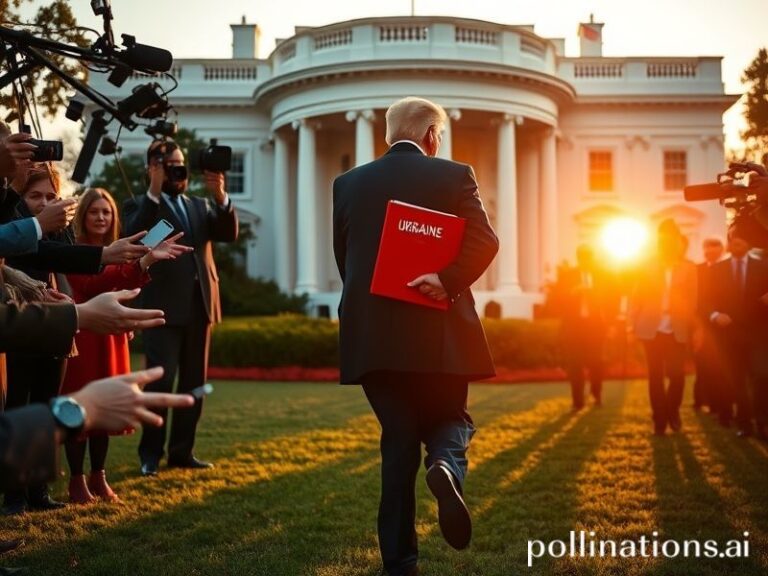Mohammed Alakel: The Man Whose Name Freezes Cinnamon, Bank Accounts, and Hope
The Curious Case of Mohammed Alakel: A Portrait in Global Inconvenience
By Our Correspondent in Somewhere-With-Wi-Fi
Let us begin with the obvious: Mohammed Alakel is not, strictly speaking, famous. His name does not trend on the same algorithmic hamster wheel that recently elevated a raccoon eating cotton candy in a Tokyo subway to the rank of minor deity. Yet for a certain stripe of international bureaucrat, sanctions lawyer, and caffeine-powered compliance officer, Alakel has become the human equivalent of a pebble in the diplomatic shoe—small, persistent, and surprisingly painful if you walk long enough.
Who is he? A Yemeni businessman, passport number 03977421, born in Sana’a circa 1978, give or take the fuzzy arithmetic common to war-zone civil registries. According to the UN’s 2140 Sanctions Committee (motto: “We move slower than glaciers, but with heavier paperwork”), Alakel is a “facilitator” for the Houthis, a Yemeni movement whose political ideology can be summarized as “Death to Someone, Details TBD.” Washington, Brussels, Riyadh, and—because the twenty-first century loves company—Ottawa have all frozen whatever assets he may theoretically possess, presumably after discovering he once sold a used Toyota Hilux that later learned to carry rockets. The irony, of course, is that in a country where the median GDP per capita rivals the price of a mid-tier espresso machine, the term “assets” is almost charming.
Global Context, or How to Sanction a Mirage
Sanctions regimes are the West’s favorite multiplayer game: everyone joins, nobody wins, and the DLC keeps expanding. When the U.S. Treasury’s OFAC added Alakel to its Specially Designated Nationals list last March, the announcement arrived with the usual pomp of a medieval papal bull—minus the Latin, plus a PDF. European banks instantly began auto-rejecting any transaction containing the substring “Alakel,” which promptly stranded remittances sent by a同名 Syrian barber in Berlin whose only crime was aggressive mustache grooming. Meanwhile, a Dubai-based trading house discovered its cinnamon shipment detained in Djibouti because the bill of lading featured “M. Alakel” as consignee. The cinnamon, for the record, now seasons Djiboutian prison food—surely the most flavor the penal system has enjoyed since colonial days.
From a macro perspective, freezing the accounts of a man whose banking footprint is already microscopic sends a clear message: “We are doing something.” The message is addressed less to Alakel than to CNN’s chyron writers and Saudi lobbyists, both of whom require daily evidence that the Rules-Based Order™ still has a pulse, however thready. One UN diplomat in Geneva confessed to this reporter that he sometimes adds names to lists just to watch interns scramble for Arabic diacritics. “It’s the closest we get to joy,” he sighed, nursing a lukewarm Nespresso.
The Human Farce
Closer to the ground, the sanctions weave a black comedy of errors. Aid agencies trying to deliver saline solution to cholera clinics must now vet every warehouse guard, driver, and goat herder against eight different databases, because Alakel once allegedly invested in a bottled-water plant that may or may not have moonlighted as a missile coolant supplier. The result: saline sits in customs, cholera flourishes, and CNN cuts to a commercial about probiotic yogurt. Somewhere, a marketing executive wins an award for “purpose-driven storytelling.”
Yet Alakel himself remains elusive. Neighbors in Sana’a’s Old City describe him as a quiet importer of Chinese generators—“the kind that break just after the warranty, like all good relationships.” Others swear he fled to Muscat, sporting a new passport identifying him as “Mohammed Al-Aqel,” which is either clerical error or the most Yemeni version of witness protection imaginable. The U.S. State Department offers a $5 million reward for information leading to his location, roughly the cost of one Tomahawk missile, suggesting the market values a single man at about 0.7% of the ordnance designed to vaporize him. Capitalism, ever poetic.
Broader Significance, or Why Pebbles Outlive Mountains
In the grand tapestry of geopolitics, Mohammed Alakel is a single dark stitch. Still, his story illuminates the modern ritual of weaponized bureaucracy: how lists expand like kudzu, how acronyms multiply like fruit flies, and how entire economies learn to tiptoe around syllables. The Houthis continue firing drones at Saudi oil depots undeterred; the cinnamon remains incarcerated; and somewhere in Brussels, a committee is already drafting the next amendment to Regulation 2018/1672.
History will likely forget Mohammed Alakel, but the system that conjured him into global relevance will mint thousands more—each as disposable, as inconvenient, and as human as the last. And that, dear reader, is the most sophisticated cruelty of all: to make a man immortal in footnotes while rendering his actual life unlivable.







